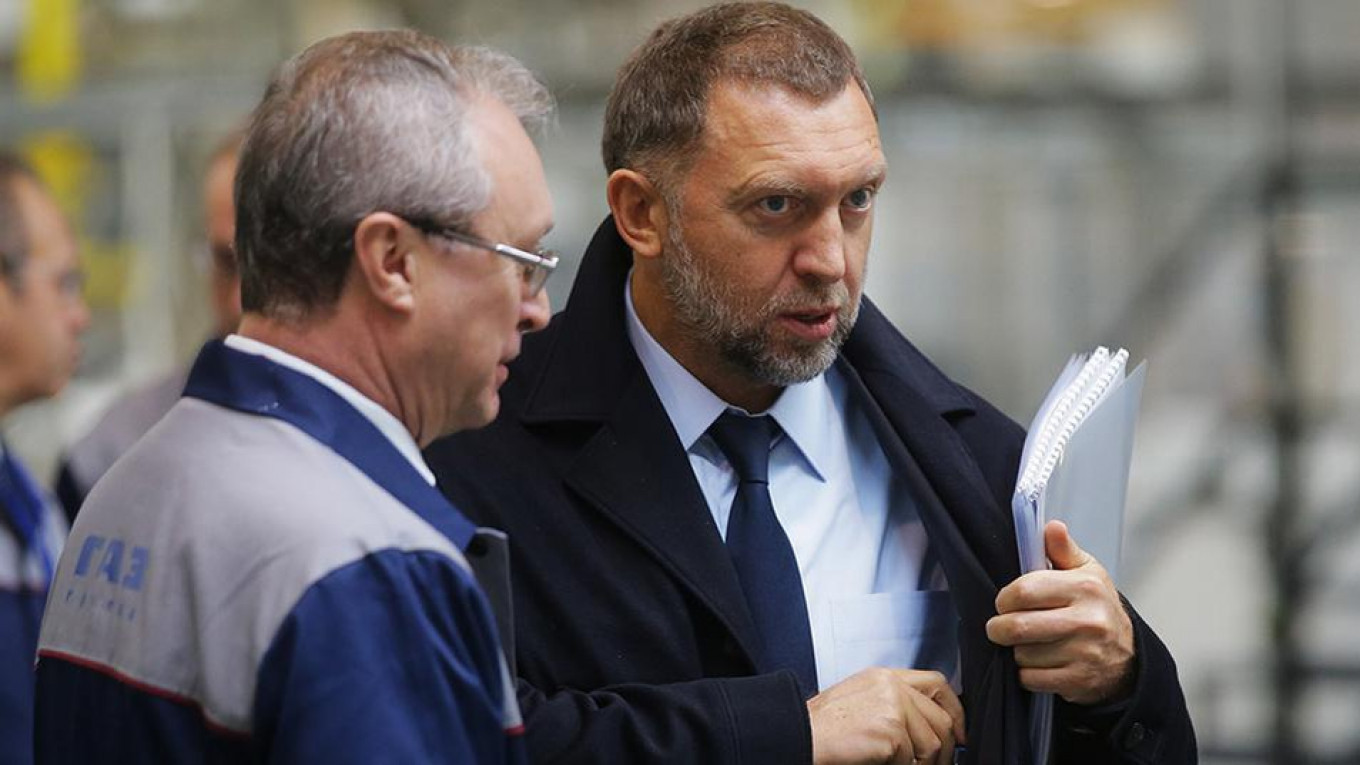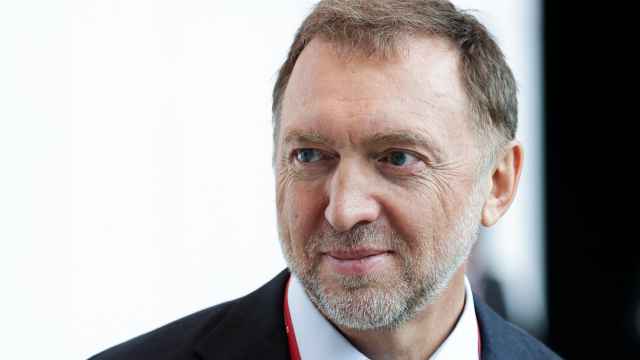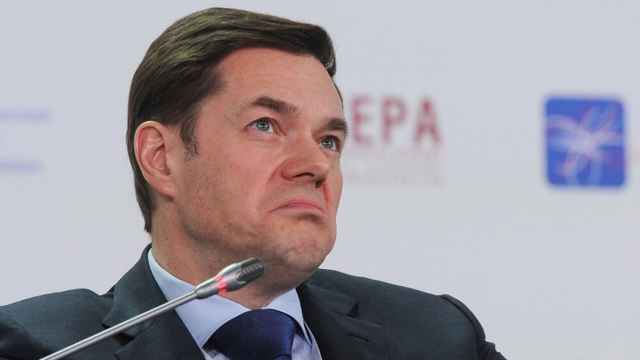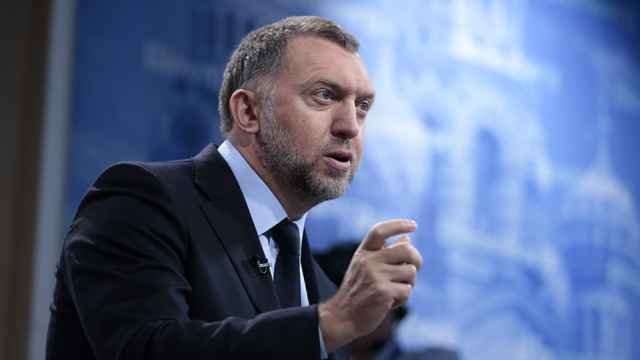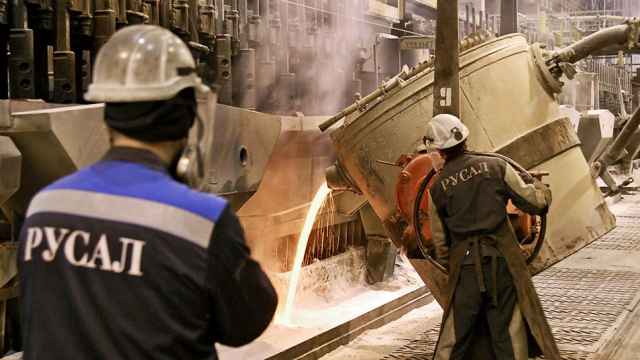Oligarchs reportedly close to Russian President Vladimir Putin who have had bank accounts frozen or property seized after Moscow's invasion of Ukraine are pushing back against the Western sanctions — or finding ways around them.
Authorities have frozen about £18.4 billion ($22.2 billion) of Russian assets in Britain, and 17 billion euros worth ($18 billion) in the European Union.
The elite businessmen are mostly keeping a low profile, but some have launched costly legal counteroffensives while many others seek sanctuary in sanctions-free nations.
Russian banker Petr Aven, who insists he has "no financial or political relationship" with the Kremlin, is asking the U.K. government to unlock £60,000 per month from his frozen accounts for his family's essential needs.
Aven, who co-founded private equity firm LetterOne with fellow oligarchs Mikhail Fridman and German Khan, has taken up residency in Latvia.
A large number of oligarchs, including Aven, Fridman and Khan as well as Roman Abramovich and Alisher Usmanov, are using their deep pockets to file lawsuits against sanctions in Britain and the EU.
Aluminium billionaire Oleg Deripaska, whose personal fortune halved in the past year to $1.7 billion according to Forbes magazine, is taking legal action against Washington over the sanctions.
Deripaska has spent much of his time in Russia, where a hotel he owned was reportedly seized by authorities after he described Moscow's invasion of Ukraine as a "war" — the Kremlin refers to it only as a "special operation."
Chelsea football club
Abramovich, perhaps the best-known oligarch, initially sought to broker peace talks between Moscow and Kyiv while promoting good relations with the West, but was nevertheless forced to sell his beloved Chelsea football club.
He has since been seen multiple times in Israel, where he also has citizenship, as well as in the United Arab Emirates and Turkey — nations that have not imposed penalties on Russia's elite.
Dubai has in fact opened its arms and now has a district that has been renamed "Little Moscow."
Abramovich, who is the largest shareholder in Russian steel giant Evraz, has seen his fortune halve to about $7 billion according to reports.
Ukraine-born Fridman chose to stay in London, his lawyer confirmed to AFP. According to newspaper reports, he has been seen sipping champagne in a theatre.
'Sitting tight'
These elite businessmen still possess substantial amounts of money.
"It's hard to say how much their wealth has suffered because we don't know how much they had," Georgetown University professor Jodi Vittori, who has studied state corruption and illicit financing, told AFP.
And the freezing of property in London is not a straightforward task, with assets often held in tax havens via anonymous trusts, shell companies or relatives.
Around 52,000 U.K. properties are owned by unknown investors, including some close to the Kremlin, Transparency International U.K. said in a recent report.
"There seems to be still too many ways to avoid" sanctions, concluded Duncan Hames, policy head at the anti-corruption campaign group.
"Our assumption is that they are sitting tight, waiting for a better day."
Sanctions 'still important'
The ultra-rich executives might not exert direct influence on the Kremlin and the way it carries out the Ukraine war — but their indirect role is to provide vital help, Vittori said.
That includes the provision of mercenaries like those of the Wagner group, controlled by the Putin associate CEO Yevgeny Prigozhin.
"The importance (of oligarchs) is not to just have influence, but to do certain things on behalf of the Russian regime: provide mercenaries, key minerals for the war machine, launder money for the regime or for Putin himself," Vittori said.
"So having sanctions on them is still important."
A Message from The Moscow Times:
Dear readers,
We are facing unprecedented challenges. Russia's Prosecutor General's Office has designated The Moscow Times as an "undesirable" organization, criminalizing our work and putting our staff at risk of prosecution. This follows our earlier unjust labeling as a "foreign agent."
These actions are direct attempts to silence independent journalism in Russia. The authorities claim our work "discredits the decisions of the Russian leadership." We see things differently: we strive to provide accurate, unbiased reporting on Russia.
We, the journalists of The Moscow Times, refuse to be silenced. But to continue our work, we need your help.
Your support, no matter how small, makes a world of difference. If you can, please support us monthly starting from just $2. It's quick to set up, and every contribution makes a significant impact.
By supporting The Moscow Times, you're defending open, independent journalism in the face of repression. Thank you for standing with us.
Remind me later.


